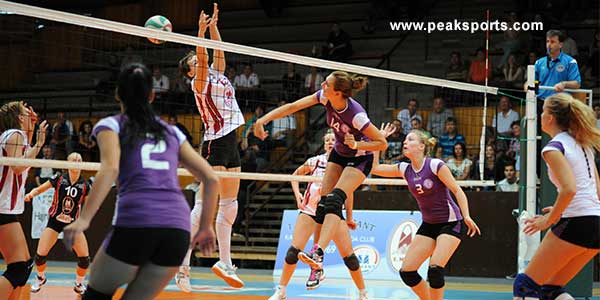
How to be Mentally Tough
What is the difference-maker in volleyball? How can you turn losses into wins?
How can you stay mentally tough after a hard loss?
What can help a team bounce back or overcome tough circumstances?
What can be the difference-maker that turns around a season?
Many volleyball players would point to hard work. Nobody can deny the value of hard work. Outworking your opponents, pushing your teammates and out-hustling the opposing team in matches are definitely requirements for success. Without hard work, your team will always under-achieve.
While hard work is a tremendous contributor to success, other factors can take your team a farther and it also requires work. That factor is your mental game.
Working on being mentally stronger, building confidence, improving focus, staying composed under pressure, managing emotions, re-focusing after a mistake, pushing onward when you are tired, having the right mentality to finish out matches or mount a comeback when trailing.
These are the factors that bring your game up a notch or two.
Again, hard work is necessary, but the development of mental skills helps you work, not only harder, but also smarter.
Without strong mental skills, you may see a bit of improvement but getting to the next level requires sound mental skills.
Mental skills are the one thing the women’s volleyball team at the University of Wisconsin – La Crosse is relying on to have greater success during the 2019 season. Last season, Wisconsin had a 16-13 record. This season, the team has relied on mental skills to be the difference-maker.
Senior Abbey Fox talked about Wisconsin’s commitment to mental training this season.
FOX: “We work a lot on our mind training or the mental aspect of the game as well, so I think that’s going to make a big difference coming into the season. We didn’t focus on that as much last season.”
Wisconsin sophomore Emma Lawrence echoed Fox’s sentiments and commented on why mental skills are tremendously important.
LAWRENCE: “I think all around in society and sport that psychology is becoming such a bigger part and 90 percent of the game is mental which is crazy to think about, so I feel like making ourselves stronger in that way is only going to make us better.”
Lawrence is 100% correct that the mental game plays a huge role in athletic success.
In fact, now more than ever, professional players, Olympic athletes, national-level athletes, collegiate athletes and youth athletes are looking for ways to get the edge on their opponents by developing mental skills.
Mental toughness skills make the difference in your success as athletes.
Improve Mental Skills
Don’t buy into the misconception that mental training is only for problem athletes or slumping athletes. It’s also about helping athletes say on top of their game.
Improving your mental skills also means:
-Performing more consistently.
-Coping with setbacks and challenges.
-Recovering from injury.
-Developing teamwork and positive communication.
-Keeping your team in the winner’s circle.
-Improving practice efficiency.
None of these areas are about slumps or challenges, but rather about improving your game.
Related Sports Psychology Articles
- How to Prepare for Pressure in Volleyball
- How to Develop a Champion Mindset in Volleyball
- Fragile Confidence and Perfectionism in Volleyball
*Subscribe to The Sports Psychology Podcast on iTunes
*Subscribe to The Sports Psychology Podcast on Spotify
Download a free sports psychology report to improve your mental game!
Learn more about our one-on-one mental game coaching.
The Mental Edge For Volleyball Players
Do you over think your performance in games? Do you lose confidence easily after a couple of blow plays? Do you become so frustrated with your game that you can’t focus on the next play?
If you answered yes to any of these questions, it’s a good bet that your mental game might prevent you from consistent performance in games…
“The Mental Edge For Volleyball” program is ideal for any club, academy, college, or professional volleyball players. In addition, volleyball coaches, instructors, and parents would also be wise to teach the strategies we provide in “The Mental Edge For Volleyball” to their players.

